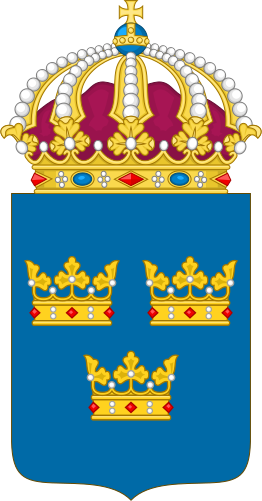Community / Land projects / FAO resilience rapid respons Burkina Faso 2018-2022
FAO resilience rapid respons Burkina Faso 2018-2022

€19924852.03
05/18 - 06/24
Concluído
This project is part of
Implementing Organisations
Donors
Data Providers
General
Project name: "Réponse d’urgence et appui à l’amélioration de la résilience des populations vulnérables dans les zones à risque du Burkina Faso 2018-2021" ("Urgent response aiming at strengthening the resilience of vulnerabe households in risk zones in Burkina Faso 2018-2020"). The FAO project code is OSRO/BKF/801/SWE. Agreement partner and implementor: Food and Agriculture Organization (FAO), United Nations In Burkina Faso, poor rainfall distributions in recent years have reduced the area of cereal crops and the income generated by agriculture The joint SAP-GTP mission in October 2017 counted 83 municipalities at risk. Thus, the current crop year 2017-2018 cereal production was estimated to have decreased with 12% compared to the average for the last five years. The project reaches 28,000 poor and very poor households (according to the HEA classification) in the coverage regions, all of whom will benefit from the unconditional cash transfer during the lean season. In addition to unconditional cash transfer, 4100 self-selected households will have the opportunity to enroll in the «Cash for Work" activities (i.e. rehabilitation of communal infrastructures) during the mitigation and recovery period. Moreover, according to their main livelihoods, all households (HH) will receive productive assets: 2800 HH cereal production, 2500 HH small livestock restocking (sheep, goats, poultry, pigs depending on the choice), 1900 HH with livestock feed coupons and 2500 HH for market gardening coupled with nutritious gardens to strengthen their resilience. All targeted households (10 000) will also benefit from a nutritional education/sensitization programme. Among the targeted beneficiaries, special emphasis will be placed on women and young people in order to take into account their specific needs. Development objective: The resilience of vulnerable pastoralists and agro-pastoralists to climate and economic shocks is improved. The initial agreement had an activity period from 1 June 2018 to 31 May 2020 and a budget of 79 million SEK. The agreement was amended at end 2019 with a budget increase up to 129 million SEK. A second amendment was made at end 2020 with an extension of the activity period to 31 December 2021 and a budget increase up to the total of 189 million SEK. The amendments are justified by the dramatic increase of need for support to the local population due the worsened security situation and the increase of the number of internally displaced people to more than one million.
Objectives
This contribution aims to increase the resilience against climate chocks and economic chocks for vulnerable pastoralist and agro-pastoral households. Activities are conducted under three result areas: Results 1: Vulnerable households improved their access to food and means of production - Unconditional monetary assistance during the lean season - Carry out post-distribution monitoring studies - Support and strengthen food security alert and analysis system Result 2: The agro-sylvo-pastoral production capital of vulnerable households in the provinces heavily affected by the crisis is restored - Support households for animal fodder production - Distribution of fodder production seed and organic fertilizer - Support households for food production - Distribution of chickpea seed and fertilizer for food crops for the benefit of women - Support households for vegetable production - Distribution of vegetable seeds and fertilizer for organic gardening - Support for the creation of sustainable water mobilization infrastructure - Realization of boulis and establishment of infrastructure management committee - Support for the consolidation of peace - Creating conflict sensitive platforms - Set up awareness/training platform on issues for prevention and management of community conflicts Result 3: The nutritional situation of vulnerable households in the provinces heavily affected by the crisis in Burkina Faso is improved - Training in production and broadcasting of radio programs - Production of communication materials - Conditional cash transfer for nutritional purposes for the benefit of pregnant and breastfeeding women and families with children aged 0 to 5 years ________________________________ The 2022 extension period will also further focus on consolidating previous results made in the three result areas, by using a triple-Nexus approach "Humanitarian-Development-Peace", in the following focus areas: 1) Strengthening gender equality and target people with specific needs: - Strengthen the promotion of gender equality by addressing the specific needs of each group and by targeting at least 50% women and 50% young people, taking into account the degrees of vulnerability; - Take into account people with specific needs, disabilities, minorities or marginalized groups. 2) Strengthening the value chain approach and nutrition: - Strengthen the value-chain approach from production to marketing, including the processing of food, animal and non-timber forest products; - Address the issues of malnutrition through the prevention and management of malnutrition in children under five years, by strengthening training and raising awareness among the population; - Develop a cash and nutrition package for families with children under 5 years. 3) Strengthening structuring and sustainable production investments: - Contribute to the strengthening of the productive capacities of households with the creation of infrastructures for improved water management (boulis, pastoral drilling, etc.), recovery of degraded land and support for vocational training of beneficiaries; - Diversify food production by supporting the development of rice and vegetable gardening; - Develop income-generating activities, particularly for women and young people, in connection with the promotion of local and artisanal products. 4) Strengthening peace building through social cohesion and conflict prevention: - Set up mechanisms for the prevention and management of conflicts, in particular through Dimitra clubs and village savings and credit associations; - Organize consultations on land- and peace issues between local actors; - Organize debates and awareness sessions on land law, land management and the peaceful management of land conflicts through local radio stations with the involvement of trained young people; - Compilation of texts relating to land and distribution to local structures and actors.



